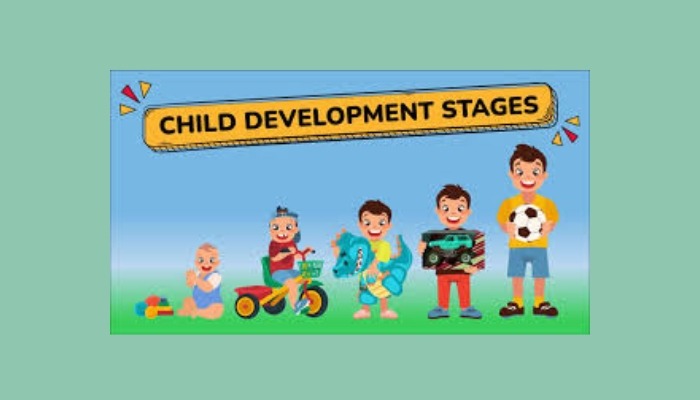What are the Health Benefits of Sports for Children? : Unlocking the Transformative Power
( If you purchase through our sponsored links, we may receive a small commission at no extra cost to you )
Sports offer numerous health benefits for children, including improved physical fitness levels and enhanced mental well-being. Through regular participation in sports activities, children develop strength, agility, and endurance, fostering overall physical development.
Additionally, sports help children maintain a healthy weight, lower the risk of chronic illnesses, and strengthen their immune system. Moreover, engaging in sports boosts self-esteem, reduces stress and anxiety, and improves cognitive abilities, including concentration and problem-solving skills. Furthermore, sports promote social interaction, teamwork, and communication skills, aiding in the development of healthy relationships and character-building.
Overall, sports play a vital role in bolstering children’s physical and mental health, ensuring a balanced and holistic approach to their overall well-being.

Credit: www.amazon.com
Physical Health Benefits
Engaging in sports activities is not only entertaining but also provides a myriad of physical health benefits for children. The positive impact on their cardiovascular health, motor skills, and bone and muscle strength cannot be emphasized enough. Let’s explore each of these aspects in more detail:
Improving Cardiovascular Health
Sports play a crucial role in improving children’s cardiovascular health. When they participate in activities that increase their heart rate and keep it elevated for a sustained period, the heart becomes stronger, and blood circulation improves. Regular exercise allows the heart to pump oxygen-rich blood to all parts of the body efficiently, improving overall cardiovascular function.
Enhancing Motor Skills And Coordination
Sports activities significantly contribute to the development and enhancement of motor skills and coordination in children. Whether it’s running, jumping, kicking, or throwing, sports require a combination of precise movements and coordination between different parts of the body. Regular participation in sports helps children refine their motor skills and develop strong hand-eye coordination, body control, and balance.
Building Strong Bones And Muscles
Active engagement in sports leads to the development of strong bones and muscles in children. The physical demands of sports activities, such as weight-bearing exercises, resistance training, and impact movements, stimulate bone growth and improve bone density. Additionally, sports contribute to the development of lean muscle mass, which increases strength and overall physical fitness. Strong bones and muscles not only benefit children during activities but also contribute to their overall posture and long-term musculoskeletal health.
In conclusion, the physical health benefits of sports for children are multifaceted. Engaging in sports activities improves the cardiovascular system, enhances motor skills and coordination, and builds strong bones and muscles. Encouraging children to participate in sports provides them with a strong foundation for a healthy and active lifestyle.

Credit: www.walmart.com
Mental And Emotional Health Benefits
Sports provide numerous mental and emotional health benefits for children, including improved self-esteem, reduced stress and anxiety, enhanced mood, and better overall mental well-being. Regular physical activity through sports can also help children develop important life skills like discipline, teamwork, and goal setting.
Promoting Mental Wellbeing
Regular participation in sports provides numerous mental and emotional health benefits for children. One key advantage is the promotion of mental wellbeing. Engaging in physical activity through sports helps children improve their overall mood and happiness levels. Through the release of endorphins, the brain’s feel-good chemicals, sports contribute to a sense of euphoria and contentment. When children are actively involved in sports, they are more likely to experience reduced feelings of depression and anxiety.Developing Resilience And Self-esteem
Another important mental and emotional health benefit of sports for children is the development of resilience and self-esteem. Participating in sports encourages children to face and overcome various challenges. Whether they encounter setbacks or achieve success, these experiences help build their resilience, teaching them to bounce back from failures and setbacks. Sports also provide opportunities for children to cultivate their self-esteem. As they improve their skills, set goals, and witness their progress, children gain a sense of accomplishment, boosting their confidence and self-belief.Reducing Stress And Anxiety
Sports play a vital role in reducing stress and anxiety among children. Engaging in physical activity helps release tension and pent-up energy, allowing children to channel their emotions in a healthy way. The endorphins released during exercise also help reduce stress and anxiety levels, creating a sense of calmness and relaxation. By participating in sports, children can find an outlet to cope with the pressures of everyday life and release any built-up stress or worries. Regular engagement in sports has been linked to improved mental clarity, enabling children to better manage their emotions and navigate stressful situations. In conclusion, the mental and emotional health benefits of sports for children are undeniable. From promoting mental wellbeing and developing resilience and self-esteem to reducing stress and anxiety, sports play a significant role in supporting children’s mental health. Encouraging children to participate in sports can have a profound impact on their overall well-being, helping them lead happier and more balanced lives. So let’s encourage our little ones to embrace the joy and benefits that sports can bring to their lives.Social And Personal Development
Engaging in sports activities from a young age offers numerous benefits for children, extending beyond the physical realm. By participating in sports, children have the opportunity to develop their social and personal skills, which are crucial for their overall growth and development.
Building Teamwork And Communication Skills
Participating in team sports provides children with a unique opportunity to learn and develop essential teamwork and communication skills. Working collaboratively towards a common goal, children learn the value of cooperation, trust, and respect for their teammates. They understand the importance of sharing responsibilities, supporting each other, and making decisions together. Effective communication skills are also honed as children learn to communicate their thoughts, ideas, and strategies with their teammates during game play.
Fostering Discipline And Goal-setting
Sports activities instill discipline and goal-setting habits in children from an early age. By actively engaging in sports, children learn the importance of following rules, instructions, and regulations set by the sport and their team. They also understand the significance of self-discipline, such as regular practice sessions, maintaining a healthy lifestyle, and managing their time effectively. Setting and accomplishing goals become second nature to them as they strive to improve their performance, achieve personal milestones, and contribute to the success of their team.
Encouraging Social Integration
Sports serve as a platform for social integration, allowing children to meet and interact with peers who share similar interests. Through sports, children have the opportunity to create new friendships, form bonds, and develop a sense of belonging. They learn to appreciate diversity and respect individual differences, thereby fostering a sense of inclusivity. This social integration not only enhances their overall well-being but also promotes positive mental health, as they build a support system and develop key social skills that transcend the boundaries of the sports field.

Credit: www.eyelink.com
Frequently Asked Questions On What Are The Health Benefits Of Sports For Children?
How Does Sports Help Kids Health?
Sports help kids’ health by promoting physical activity, increasing strength and endurance, improving coordination and flexibility, enhancing cardiovascular health, and reducing the risk of obesity and chronic illnesses. Additionally, sports contribute to mental well-being, boost self-esteem, teach discipline, teamwork, and valuable life skills.
What Are The Health Benefits For Sports?
Engaging in sports offers numerous health benefits, including improved cardiovascular health, increased strength and flexibility, enhanced mental well-being, better weight management, and reduced risk of chronic diseases like diabetes and heart disease. Stay active and reap these rewards!
What Are The Benefits Associated With Children’s Participation In Organized Sports?
Participating in organized sports offers children numerous benefits – improved physical fitness, enhanced social skills, increased self-confidence, and better academic performance. It promotes discipline, teamwork, and healthy habits while reducing stress and the risk of obesity. Overall, it contributes to their overall development and well-being.
What Are The Pros And Cons Of Youth Sports?
Youth sports offer physical fitness, teamwork, and skill development, while promoting discipline and self-confidence. However, potential cons include pressure and burnout from intense competition, risk of injury, and limited time for academics or other activities. It’s important to consider individual circumstances and find a balance.
Conclusion
Engaging in sports activities offers numerous health benefits for children. Regular physical exercise helps improve cardiovascular health, maintain a healthy weight, and develop strong bones and muscles. It also boosts self-esteem, enhances social skills, and cultivates discipline and teamwork. Encouraging children to participate in sports from an early age lays a foundation for a healthy lifestyle and well-being throughout their lives.
By supporting their physical and mental development, sports contribute to the overall growth and happiness of children.




